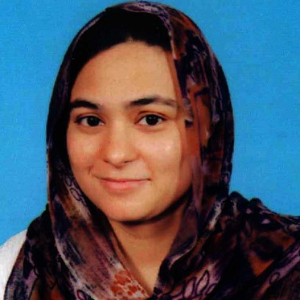Title : Laparoscopic sleeve gastrectomy versus lifestyle modification in class I obesity in Pakistani population: A prospective cohort study
Abstract:
Introduction :The American Society of Metabolic and Bariatric Surgery has stated that bariatric surgery is indicated in Class I obesity patients with one or more comorbidities. However, other weight loss options, such as diet plus exercise, are available to patients with a body mass index (BMI) ranging from 30 to 35 kg/m2 . This study aimed to prospectively compare the results of Class I obesity patients undergoing laparoscopic sleeve gastrectomy (LSG) or using a weight control program (WCP).
Methods:A prospective analysis was conducted of patients with Class I obesity and comorbid diabetes and hypertension, with follow-ups at 6, 12, and 18 months. Subjects were divided into two groups: the LSG group of patients who had undergone LSG, and the WCP group who adhered to a WCP. The percentage of excess BMI loss (%EBMIL) and comorbidity remission (diabetes mellitus and hypertension) were tracked with measurements of hemoglobin A1C (HBA1C) levels and systolic blood pressure. Self-esteem was also tracked using the Rosenberg SelfEsteem Scale (SES) at 0 and 18 months. The overall patient satisfaction score was calculated using a visual analogue scale.
Results: Of the 150 patients enrolled in the study, 106 were included in the LSG group, and 103 were included in the WCP group. The reduction in HBA1C was more pronounced in the LSG group, and the differences between the two were statistically significant after 6, 12, and 18 months (LSG 5.6 ± 0.47 vs. WCP 6.5 ± 0.64, CI 1.04-0.73, P < 0.05). At 12 and 18 months, there were statistically significant reductions in systolic blood pressure after LSG (LSG 134.2 ± 7.16 vs. WCP 145.63 ± 5.94, CI 13.2-9.6, P < 0.05). Self-esteem levels measured by the Rosenberg SES increased for all participants, while patient satisfaction score was higher in the LSG group than that in the WCP group (P < 0.05). The %EBMIL at 6 months in the LSG group was 35.48%, compared to the WCP group at only 7.23%. At 12 months, the %EBMIL had increased twofold in the LSG group, at 68.19%, compared to 14.53% in the WCP group. At the final 18-month followup, the %EBMIL in the LSG group was 99.60% but was only 25.70% in the WCP group (P < 0.05).
Conclusion: Our study elucidates a clear superiority of LSG over any structured WCP with regard to weight reduction, improvement in glycemic control, and reduction in blood pressure in Class I obesity patients. Additionally, patients having LSG reported markedly improved self-esteem and satisfaction when compared with those who undertook a WCP.
Audience Take Away Notes:
- They will be able to have an insight of results of the sleeve gastrectomy in terms of achieving weight loss.
- This topic opens the room for more opportunities for research world wide since more long term outcomes are still left to be known.
- Field of bariatric surgery is emerging and there is room for comparison of effectiveness of various procedure within the field.



